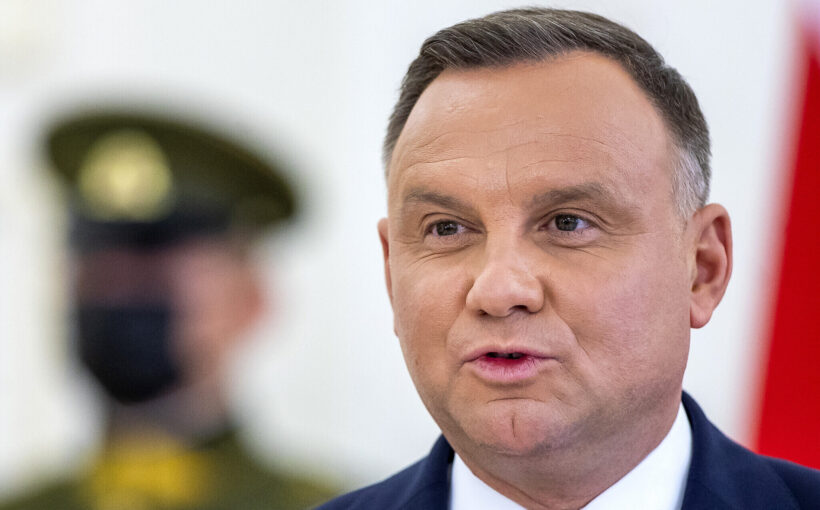Warsaw is on the path to unblocking €76 billion in EU cash that was frozen over rule-of-law-concerns, said Poland’s minister for funds and regional policy.
Payout of the funds from the EU’s 2021-2027 budget have been blocked over legal concerns after the government led by the nationalist Law and Justice (PiS) party implemented judicial reforms that threatened to subvert the independence of Polish courts. The PiS administration was replaced in December by a new government led by pro-EU Prime Minister Donald Tusk, who has promised to free up EU funds by reinstating the rule of law.
“We have confirmation from the European Commission — Poland meets the last three conditions necessary for the full mobilization of structural funds — €76 billion for the implementation of programs until 2027,” Funds and Regional Policy Minister Katarzyna Pełczyńska-Nalęcz said Friday evening on social media.
In a television interview on Saturday, the minister said that the first blocked structural funds should arrive in Poland by the end of March or early April; Poland has submitted a request for a payment of €6.9 billion.
“There is a green light so that we can finally submit documents for the structural funds — this is called a self-assessment,” she said, adding that after the assessment is reviewed by the European Commission, Poland will be able to submit funding applications to Brussels. “This is another two-three months plus another 1.5 months.”
The European Commission told Reuters news agency that Warsaw had officially informed the EU executive that Poland believed it had fulfilled the rule-of-law conditions necessary to get the money, but that the situation was still being assessed.
“We are analyzing the letter submitted by the Polish authorities to assess whether Poland fulfills the enabling condition in the area of judicial independence,” the Commission said in an email, Reuters reported. “The Commission has three months to make this assessment,” it added.
In December, Poland received the first €5 billion of funding that had been blocked by the EU due to democratic backsliding. That money was aimed at assisting EU countries in lessening their reliance on Russian fossil fuels and recovering from the energy crisis that erupted after Russia invaded Ukraine in 2022.
Pełczyńska-Nałęcz also mentioned that the new Polish government will have to pass legislation rolling back changes to the judicial system and restore the independence of courts to unblock €35 billion in grants and loans from the EU’s pandemic relief program.
However, that would have to be approved by Polish President Andrzej Duda, a PiS loyalist who is wary of undoing his party’s legal changes. The new Tusk government doesn’t have the votes in parliament to override Duda’s veto.
Justice Minister Adam Bodnar is starting by making personnel changes, removing politically compromised prosecutors and judges from their posts.
However, to fully align with demands from Brussels, the government will have to pass a law revamping the National Council of the Judiciary (NCJ), the body that chooses new judges, but which has been found to be politically compromised by European courts.
“The functioning of the National Council of the Judiciary should be thoroughly reformed, in particular the mode of electing members should be repaired,” Bodnar said last week, adding that the government is preparing legislation to make that happen.
Deputy Justice Minister Dariusz Mazur said he is counting on Duda to be “willing to fix this status of the NCJ together with us.”


